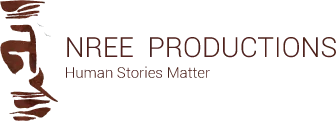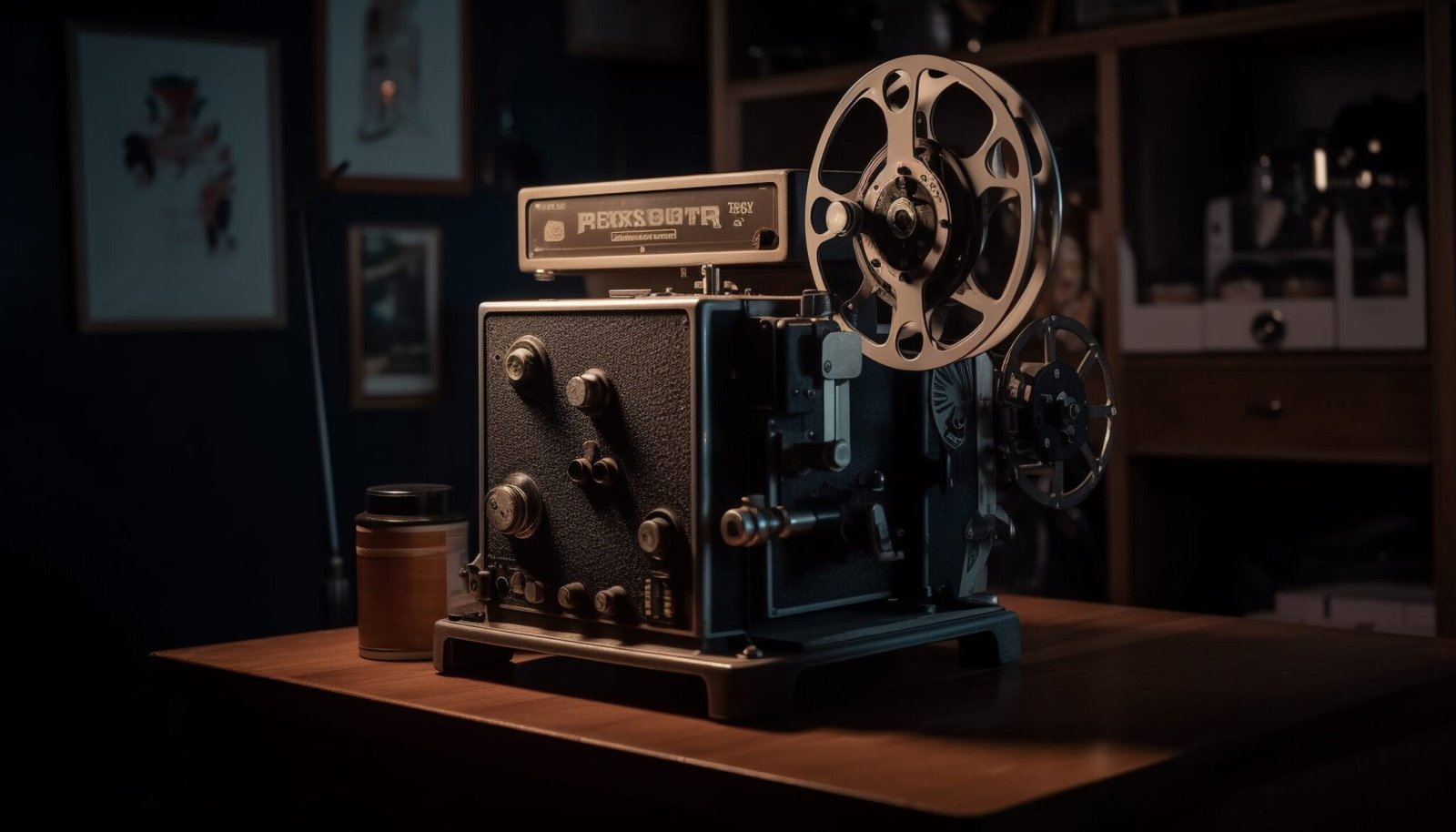Step into the captivating world of documentary filmmaking with “Meet The 15 Famous Documentary Filmmakers of 2025.” Get ready for an exclusive backstage pass into the lives and works of the industry’s trailblazing storytellers.
From heart-wrenching tales that challenge the status quo to exhilarating journeys into the unknown, these famous documentary filmmakers are redefining the art of non-fiction cinema. With every frame, they capture the essence of humanity, sparking conversations and igniting change.
Join us as we embark on a thrilling adventure through their lens, where every image tells a story and every moment resonates with truth.
Prepare to be inspired, moved, and empowered as we shine a spotlight on the passion, innovation, and sheer brilliance of these cinematic visionaries.
Get ready to experience the power of storytelling like never before!
The power of documentary filmmaking in shaping our worldview
Documentary filmmaking has long been a powerful tool for shaping our understanding of the world and its complexities. Through the lens of a skilled documentarian, we are given a window into the lives of others, allowing us to empathize, learn, and grow.
These visionaries have the ability to transport us to distant lands, to introduce us to fascinating individuals, and to shed light on pressing issues that might otherwise remain hidden from view.
By doing so, they challenge our assumptions, spark important conversations, and inspire us to take action. From exposing environmental injustices to highlighting the struggles of marginalized communities, documentary filmmakers have the unique ability to raise awareness, spark empathy, and drive change.
They are the storytellers of our time, and their work has the power to leave an indelible mark on our collective consciousness.
15 Famous Documentary Filmmakers in 2025
1. D.A. Pennebaker: The pioneer of direct cinema
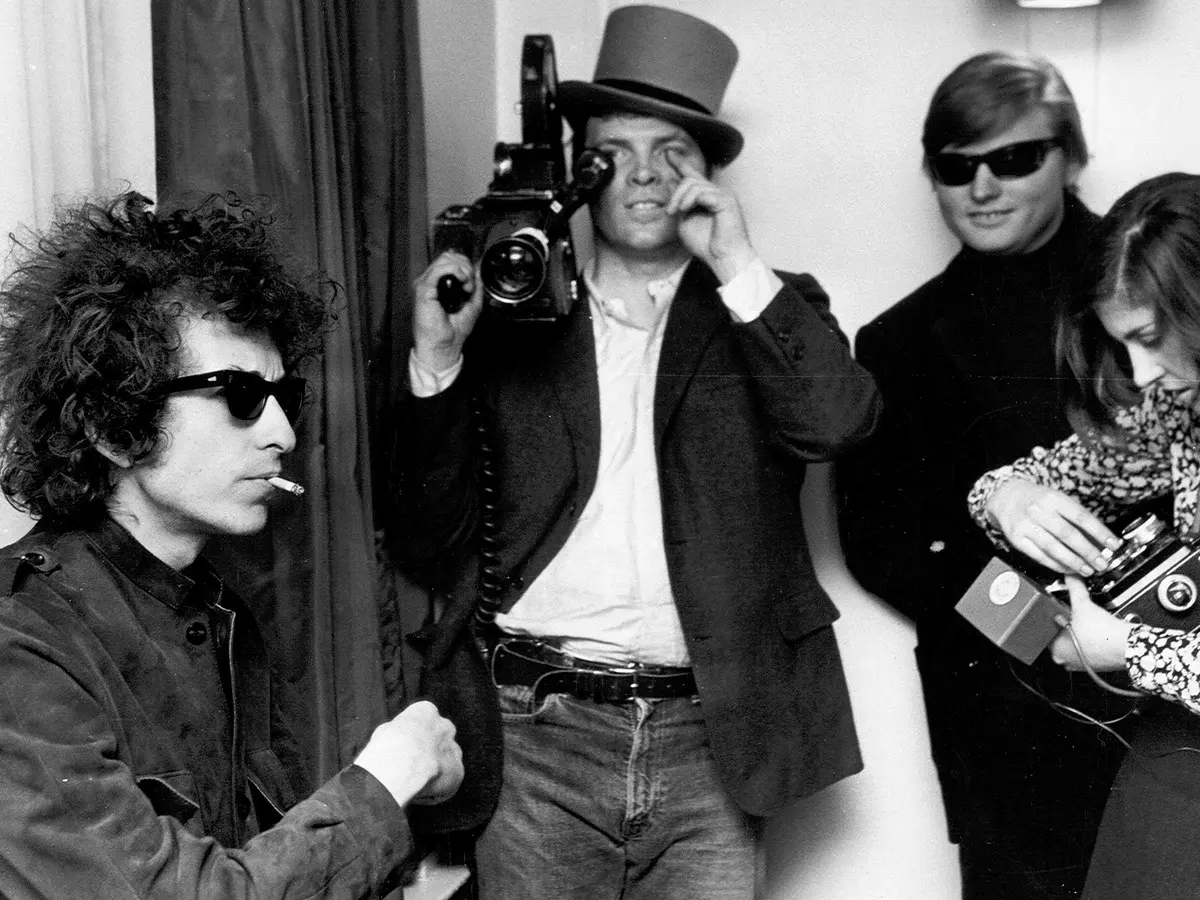
D.A. Pennebaker, a true pioneer in the world of documentary filmmaking, is a name that resonates with anyone who’s serious about the craft. With a career spanning over 60 years, Pennebaker has been instrumental in shaping the very fabric of documentary filmmaking. His innovative approach to storytelling, characterized by a fly-on-the-wall style, has inspired generations of filmmakers.
Dubbed as the “father of direct cinema,” Pennebaker’s films are known for their raw, unbridled energy, capturing the essence of his subjects in a way that’s both intimate and unobtrusive. His iconic films, such as “Don’t Look Back” (1967), which followed Bob Dylan on his UK tour, and “Monterey Pop” (1968), a groundbreaking music documentary, continue to influence the genre to this day.
Pennebaker’s legacy extends far beyond his own films. As his innovative approach has paved the way for many other famous documentary filmmakers to push the boundaries of the medium.
2. Albert Maysles: The father of documentary filmmaking
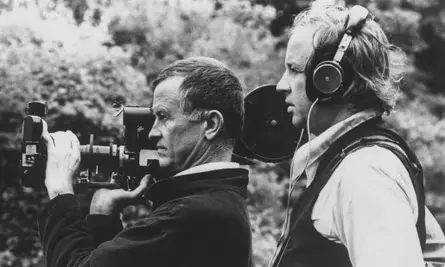
Albert Maysles, a pioneer in the world of documentary filmmaking, is often referred to as the “father of direct cinema.” His innovative approach to storytelling and unobtrusive filming style have inspired generations of documentary filmmakers.
Born in 1926, Maysles’ remarkable career spanned over six decades, during which he created some of the most iconic and influential documentaries of all time.
Maysles’ filmmaking style was characterized by his ability to capture intimate, unscripted moments with his subjects. He was known for his “fly on the wall” approach, which allowed him to document real-life events with minimal intrusion. This technique enabled him to reveal the true essence of his subjects, often exposing the raw and unvarnished truths of their lives.
Some of Maysles’ most notable works include “Salesman” (1969), “Gimme Shelter” (1970), and “Grey Gardens” (1975). These films not only showcased his exceptional storytelling skills but also demonstrated his ability to tackle complex and controversial subjects with sensitivity and nuance. Through his work, Maysles continues to inspire documentary filmmakers to push the boundaries of the genre and challenge the status quo.
3. Errol Morris: The master of storytelling
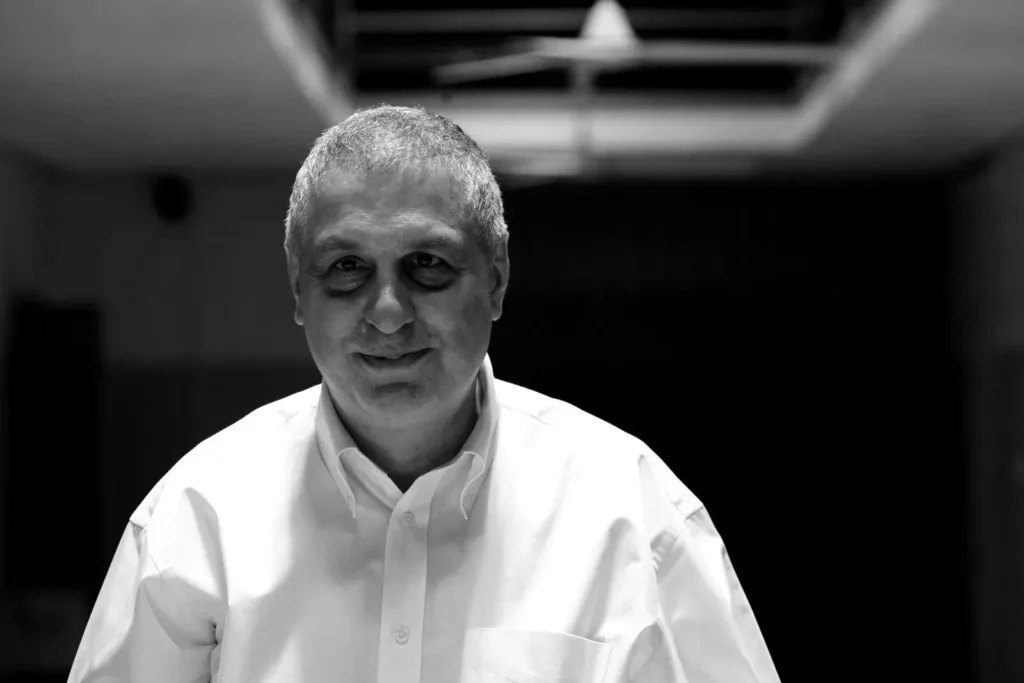
Errol Morris, a true visionary in the world of documentary filmmaking. He has been captivating audiences with his unique storytelling style for over four decades. With a career spanning over 40 years, Morris has established himself as a master of the craft, known for his innovative and thought-provoking approach to non-fiction storytelling.
His documentaries are not just informative, but also immersive, often blurring the lines between reality and fiction to create a cinematic experience like no other.
Morris’s films often delve into the darker aspects of human nature, exploring themes such as morality, truth, and the human condition. His Oscar-winning documentary, “The Fog of War” (2003), is a prime example of his ability to craft a compelling narrative. As he delves into the life and experiences of former US Secretary of Defense, Robert S. McNamara.
Through a series of introspective interviews, Morris masterfully weaves together a complex tapestry of historical events, revealing the inner workings of a man who played a pivotal role in shaping the course of American history.
Morris’s distinctive style, which often features re-enactments, stylized visuals, and a haunting score, has influenced a generation of documentary filmmakers. His unwavering commitment to telling the truth, no matter how uncomfortable or complex, has earned him a reputation as a fearless and uncompromising storyteller.
With a filmography that includes critically acclaimed documentaries such as “Gates of Heaven” (1978), “The Thin Blue Line” (1988), and “Standard Operating Procedure” (2008). Errol Morris is undoubtedly a famous documentary filmmaker who continues to push the boundaries of the genre, inspiring audiences and fellow filmmakers alike.
4. Werner Herzog: The poet of documentary filmmaking
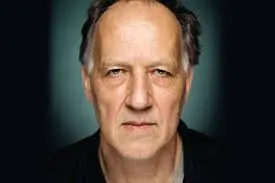
Werner Herzog is a cinematic icon, a master of the documentary form, and a poet of the human condition. With a career spanning over five decades, Herzog has created a body of work that is both provocative and profound.
His documentaries are not just mere observations of reality, but rather a deep dive into the very essence of existence. Through his lens, the mundane becomes mystical, and the ordinary, extraordinary.
From the hypnotic gaze of “Fata Morgana” to the haunting landscapes of “Lessons of Darkness”. Herzog’s films are a testament to his boundless curiosity and his ability to find beauty in the most unexpected places.
His documentaries are often described as “ecstatic truth”, a phrase that captures the essence of his unique approach to storytelling. By blurring the lines between fact and fiction, Herzog creates a dreamlike atmosphere that draws the viewer into the heart of the narrative.
With a distinctive voice that is both soothing and unsettling, Herzog’s narration guides us through the labyrinthine corridors of the human experience. His films are a reflection of his own fascination with the mysteries of life, and his quest to understand the intricacies of the human condition.
Whether he’s exploring the depths of the Amazon rainforest or the darker corners of the human psyche, Herzog’s documentaries are a journey into the unknown, a journey that is both mesmerizing and unforgettable.
5. Les Blank: The chronicler of American roots music
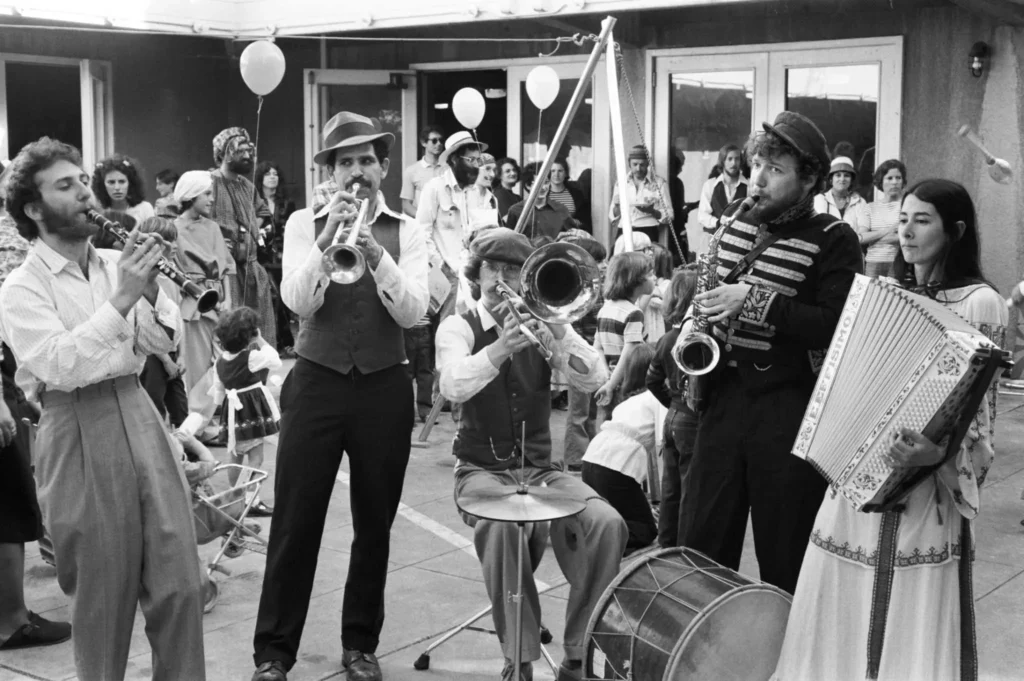
Les Blank, a true cinematic treasure, was a documentary filmmaker who spent his career capturing the essence of American roots music. With a keen eye for the authentic and the obscure, Blank’s films are a testament to the power of music to bring people together and transcend borders.
His documentaries, often described as “poetic” and “lyrical,” are more than just musical portraits. They’re immersive experiences that transport viewers to the heart of America’s rich musical heritage.
From the swampy blues of the Mississippi Delta to the zydeco dancehalls of Louisiana, Blank’s films follow the rhythms and melodies of the country’s most iconic musicians. His camera lingers on the worn fingers of a blues guitarist, the sweat-drenched smiles of a gospel choir, and the weathered faces of Appalachian folk singers. Through his lens, the music becomes a character in itself, pulsing with life and energy.
With a career spanning over five decades, Blank’s filmography is a treasure trove of American music history. Many consider his famous films, like “A Well Spent Life” (1971) and “Hot Pepper” (1973), as documentary classics. Contemporary filmmakers draw influence from his work.
Today, Les Blank’s legacy continues to inspire a new generation of documentarians, musicians, and music lovers alike.
6. Frederick Wiseman: The observational documentary master
Frederick Wiseman is a filmmaking giant, known for his unflinching and immersive observational documentaries that delve into the intricacies of American institutions. With a career spanning over five decades, Wiseman has built a reputation for his innovative and provocative storytelling style. He has earned him numerous accolades, including three Academy Award nominations.
Wiseman’s films are characterized by their fly-on-the-wall approach. He embeds himself within the walls of institutions such as hospitals, schools, and government agencies, capturing the raw and unvarnished truth of the human experience.
His films, such as “Titicut Follies” (1967) and “High School” (1968), are masterclasses in observational documentary filmmaking, offering a nuanced and thought-provoking exploration of the complexities of modern society. Wiseman’s influence on the documentary genre is undeniable, and his work continues to inspire a new generation of filmmakers.
7. Barbara Kopple: The queen of documentary filmmaking
Barbara Kopple is a cinematic force to be reckoned with, and her impressive body of work has earned her the title of “queen of documentary filmmaking.” With a career spanning over four decades, Kopple has consistently pushed the boundaries of storytelling, delving into the lives of everyday people and shedding light on the human experience.
Her films are a masterclass in empathy, intimacy, and observational storytelling, often capturing the raw, unfiltered emotions of her subjects.
From her Oscar-winning films “Harlan County, USA” (1976) and “American Dream” (1990). To her more recent works like “Shut Up & Sing” (2006) and “Miss Sharon Jones!” (2015), Kopple’s documentaries are a testament to her fearless and compassionate approach to filmmaking.
Her ability to build trust with her subjects, often in the most challenging and tumultuous of circumstances. She has resulted in some of the most memorable and impactful documentaries of our time. With a legacy that continues to inspire generations of filmmakers, Barbara Kopple is an icon in the world of documentary filmmaking.
8. Ken Burns: The historian of documentary filmmaking
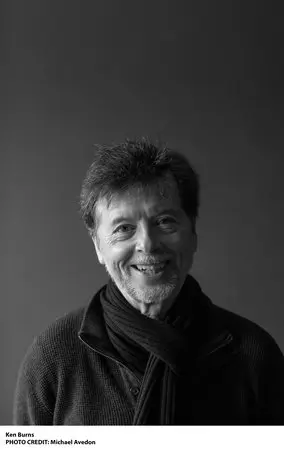
Ken Burns is a name synonymous with documentary filmmaking. With a career spanning over four decades, Burns has established himself as a master storyteller, weaving intricate narratives that transport audiences to bygone eras.
Dubbed “the historian of documentary filmmaking,” Burns has dedicated his life to uncovering the hidden facets of American history, politics, and culture.
From the sweeping epic of “The Civil War” to the poignant exploration of “The Vietnam War,” Burns’ films are a testament to his meticulous research and innovative storytelling. His signature style, which combines archival footage, still images, and interviews with experts and everyday people. He has become a hallmark of documentary filmmaking.
Burns’ films are not just informative; they are also deeply emotional and personal, often probing the human experience behind the headlines. His ability to balance intellectual curiosity with emotional resonance has earned him widespread acclaim and numerous awards, including multiple Emmy and Academy Award nominations.
As a result, Burns has become a beloved figure in the world of documentary filmmaking, inspiring generations of filmmakers to follow in his footsteps.
9. Nick Broomfield: The provocateur of documentary filmmaking
Nick Broomfield is a British famous documentary filmmaker known for his provocative and unconventional approach to storytelling. With a career spanning over four decades, Broomfield has built a reputation for pushing boundaries and challenging his subjects, often incorporating himself into the narrative.
His films are a reflection of his fascination with the human condition, delving into the darker aspects of society and the individuals who inhabit it.
From his early work on the punk rock scene to his more recent explorations of serial killers and cult leaders. Broomfield’s films are characterized by their unflinching gaze and willingness to ask uncomfortable questions.
His signature style, which often involves confronting his subjects with tough questions and inserting himself into the narrative. He has been both praised and criticized for its boldness and lack of objectivity.
Despite the controversy, Broomfield’s films have garnered critical acclaim and numerous awards, cementing his status as a visionary in the documentary filmmaking world. His influence can be seen in many contemporary documentarians. He continued output ensures that he remains a vital voice in the industry.
10. Laura Poitras: The whistleblower of documentary filmmaking
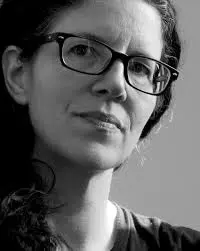
With a keen eye for the intricacies of power and surveillance, Laura Poitras has established herself as a fearless and formidable documentary filmmaker. Her work has consistently pushed the boundaries of investigative journalism, often putting her at the forefront of some of the most pressing issues of our time.
Poitras works fearlessly to uncover truth. She collaborates with whistleblowers like Edward Snowden. Together, they revealed NSA’s mass surveillance in “Citizenfour”. She’s known for exposing government and corporate secrecy. Poitras is a champion of transparency and accountability.
With a filmography that includes “My Country, My Country” and “Risk”, Poitras continues to challenge our understanding of the world and inspire a new generation of documentary filmmakers to take risks and speak truth to power.
11. Ava DuVernay: The champion of social justice
Ava DuVernay stands as a towering figure in contemporary filmmaking, particularly for her unwavering commitment to shedding light on issues of social justice and inequality. Born in 1972, DuVernay began her career in film as a publicist and marketer before transitioning into directing and producing.
Her breakout documentary is “13th” (2016). It’s named after the Thirteenth Amendment. The film explores race, mass incarceration, and the prison-industrial complex.
Through compelling interviews and archival footage, DuVernay exposes systemic injustices and challenges viewers to confront the reality of racial inequality within the criminal justice system.
12. Joshua Oppenheimer: The documentarian of human darkness
Joshua Oppenheimer makes haunting documentaries. They delve into the darkest aspects of human nature. His films confront viewers with uncomfortable truths. They reveal humanity’s capacity for cruelty and violence.
Oppenheimer was born in 1974. He gained international acclaim for his films set in Indonesia. His work explores the legacy of the 1965-1966 massacres.
“The Act of Killing” came out in 2012. It’s followed by “The Look of Silence” in 2014. These films offer chilling insights into perpetrators and survivors. They challenge audiences to confront unchecked power and collective silence.
13. Asif Kapadia: The storyteller of tragic icons
Asif Kapadia’s documentaries are poignant portraits of iconic figures whose lives were marked by tragedy and triumph. Born in 1972, Kapadia rose to prominence with his immersive and deeply emotional storytelling style.
His film “Senna” (2010) is a riveting exploration of the life and legacy of Brazilian Formula One racing driver Ayrton Senna, capturing his meteoric rise to fame and untimely death.
Similarly, “Amy” (2015) offers an intimate portrayal of singer-songwriter Amy Winehouse, delving into her struggles with addiction and fame while celebrating her immense talent and vulnerability.
14. Amy Berg: The investigator of institutional failure
Amy Berg is a fearless documentarian known for her uncompromising investigations into institutional failures and abuses of power. Born in 1970, Berg’s background in journalism informs her meticulous approach to storytelling.
Her documentary is called “Deliver Us from Evil” (2006). It exposes the cover-up of child sexual abuse in the Catholic Church. The film reveals institutional complicity and betrayal.
“West of Memphis” (2012) is a documentary. It looks into the wrongful convictions of three teenagers. They were involved in the West Memphis Three case. The film exposes the miscarriage of justice and flawed legal systems.
15. Jehane Noujaim: The chronicler of social upheaval
Jehane Noujaim makes documentaries. They chronicle social upheaval and revolution. Her work captures raw emotions and complex dynamics. She was born in 1974. Noujaim’s documentaries immerse viewers in political turmoil. They offer firsthand accounts of grassroots movements and societal transformations.
“The Square” (2013) depicts the Egyptian Revolution of 2011. It follows activists and protesters in Cairo’s Tahrir Square. “Control Room” (2004) reveals Al Jazeera’s coverage of the Iraq War. It challenges Western narratives and media’s influence. These filmmakers greatly impact documentary filmmaking. They deepen our understanding of humanity.
Their dedication, creativity, and courage inspire audiences. They also motivate fellow filmmakers. Their work shapes documentary filmmaking for the future.
What we can learn from these visionaries
These filmmakers teach us storytelling and filmmaking. They bring unique perspectives, inspiring and challenging us. They teach perseverance, creativity, and commitment to crucial stories. Documentaries go beyond reality, crafting narratives resonating with audiences.
Taking risks and embracing innovation convey complex ideas. Empathy, compassion, and understanding humanize issues and people, encouraging diverse viewpoints. Their work deepens appreciation for documentary filmmaking’s art and its impact on awareness. They inspire, educate, and challenge us, showing filmmaking isn’t just about capturing reality. Their films spark conversations and push boundaries.
By studying their work, we gain insights into the power of storytelling. They remind us documentaries humanize facts, encouraging us to see the world differently. Their legacy inspires future storytellers, shaping our collective consciousness.
Delving into their works, we’re reminded of storytelling’s impact on society. Their dedication to truth and empathy resonates, inspiring change and fostering understanding.
Conclusion
Documentary filmmaking profoundly impacts society. These famous documentary filmmakers capture human experiences, provoke change, and shape history. Documentaries transport us, challenge assumptions, and humanize statistics. They mobilize public opinion, influence policies, and promote social justice.
From environmental atrocities to social injustices, documentaries shape our awareness and foster empathy. They inspire storytellers, activists, and change-makers. The future sees documentary filmmaking gaining importance, amplifying marginalized voices, and revealing truth.
Filmmakers’ legacies show storytelling’s power. They transform, educate, and inspire. Documentaries have a lasting impact on society. They shape our world and future.
